Topical Highlights
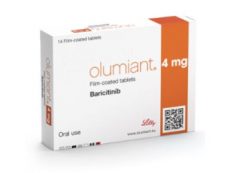
Pic of package cover for olumiant baricitinib
Natco Files Compulsory Licence Application for Covid Drug Baricitinib?
Swaraj wrote about Natco’s application for a compulsory license to manufacture the drug Baricitinib. He reports that the application points to studies showing that Baricitinib in combination with Remdesivir is more effective for patients with Covid 19, as compared to Remdesivir alone, with possibly less side effects as well. The drug is currently not manufactured in India, and less than 9000 tablets were imported in 2019 and 2020, with the average cost per tablet approximating to INR 3230. Natco, which is responsible for the only successful CL grant in India for Nexavar, has strategically applied for the license this time under Section 92, which requires the Government to accept / reject the application based on the straightforward criteria of whether the patent in force is necessary in a circumstance of national emergency, extreme urgency or a case of public non-commercial use, including in public health crises such as epidemics. With the Delhi HC and the Supreme Court advising the government to consider compulsory licenses, as well as Indian government’s TRIPS Waiver proposal at the WTO, Swaraj concludes that the time is quite opportune for Natco’s application.
In Major Turnaround, US Announces Support for IP Waiver of Covid Vaccines
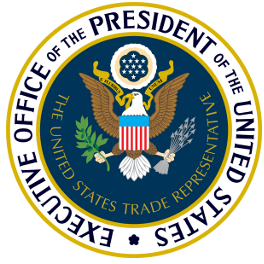
USTR logo
Swaraj reported that the US administration has changed its stance in the WTO and is now supporting the waiver of IP protections for Covid-19 Vaccines. Noting this remarkable change in position, he cautions that the statement by USTR Katherine Tai, announcing this support does not directly refer to the India-South Africa proposal which is in fact much wider than a vaccine waiver, extending to Covid-19 drugs, equipment and therapeutics as well. He argues that if it is only of the vaccines – then a much larger issue of tech transfer, know-how, tacit knowledge, manufacturing capacity etc will still pose a huge barrier to any meaningful progress on the vaccine front – unless the IP holders voluntarily share this knowledge. He also reports that India and South Africa have said that they will be modifying their initial proposal and will be submitting the revised version soon, which might have a sunset clause more explicitly mentioned.
SC Issues Interim Order in Suo Motu COVID-19 Case: Raises Questions on Vaccine Procurement Process, Compulsory Licensing and More
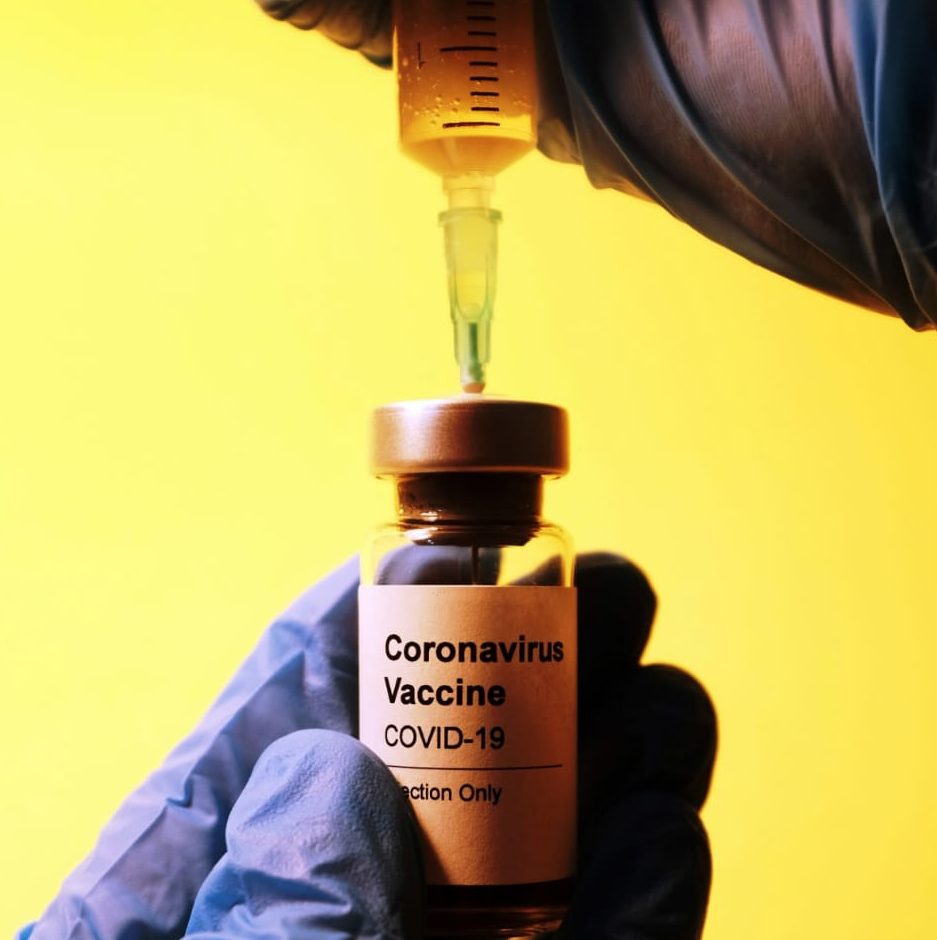
Representative image of Covid vaccine (from here)
I discussed the Supreme Court’s interim order and the directions issues in the suo motu Covid-19 case that took place on 30th April. I go over the SC’s criticism of the policy of splitting vaccine procurement between Centre and States due to the chaos and uncertainty that may be created if each state is left to directly negotiate logistical arrangements with the manufacturers. The court also takes issue with the idea of allowing direct price negotiations between state governments and private manufacturers to create a competitive market for incentivizing private vaccine production, as that will lead to competition between states and hardships for the public. This differential policy is also likely to fail the reasonable classification test under Article 14 and defeat the right to health under Article 21 of the Constitution. I argue that this competitive-market approach is reminiscent of the free-market Covid-19 medication approach which India is opposing through its TRIPS waiver proposal at WTO. I then highlight the court’s recommendation to government to consider compulsory licensing, and its directions regarding price-capping for supply of essential drugs and developing a need-based, equitable hospital admission policy. Lastly, I also underscore the SC’s commitment to free speech and information exchange online during this public health emergency.
Thematic Highlight

Covishield vaccine illustration
Bombay HC Rejects Injunction Plea in Passing Off Action against Serum Institute of India for the ‘Covishield’ Mark
Nikhil analysed the recent passing off suit by the Nanded-based pharmaceutical company, Cutis Biotech, against Serum Institute of India for the use of the mark ‘Covishield’ which was dismissed by the Bombay HC. In assessing the first determinant for passing off, i.e., prior use, he argues that the court seems to have adopted a contradictory stance in addressing the evidence of both parties where, as opposed to consistent use, a largely a one-time set of events involving a communication to print packaging material with the ‘Covishield’ mark in March 2020 holds SII the prior user. As regards reputation, SII being one of world’s largest manufacturers works in its favour to establish a much greater reputation than Cutis. The court then holds against a possibility of deception too, emphasizing the separate primary buyer group (government and citizens) and drastically different trade channels in that the vaccines can be accessed by citizens only at places designated by the government as opposed to sanitizers and disinfectants sold by Cutis. It then finds insufficient evidence of injury as well. The court then opines that regardless of the existence of a prima facie case, the balance of convenience and irreparable injury lies in favour of SII as there will be large scale confusion amongst the masses if the vaccine is not termed ‘Covishield’ anymore and thereby disrupting an already inefficient vaccination programme in India. Thus considering wider public interest, it denies the injunction.
Other Posts
Delhi HC Issues Order on Tocilizumab Shortage, Seeks Patent Working Information from Roche
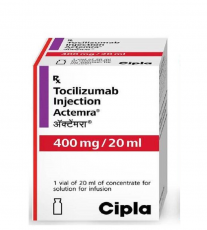
A 20 ml vial of tocilizumab, marketed by Cipla (image from here)
In another post, I discussed the Delhi High Court’s interim order issuing important directions on the shortage of the drug Tocilizumab in Delhi hospitals, wherein the patent owner Roche too had been impleaded. The court considered at length the observations of the Supreme Court in the interim order, as well as that of the Division Bench of the Delhi High court in its 20th April order and concluded that there was a case of extreme shortage of tocilizumab. It went on to issue directions to the Central government to submit information regarding the availability and distribution of the drug. From Roche, it sought information relating to import and manufacture of the drug in India. I argue that this information, which has only come to light owing to the court’s demand of the same from the government and Roche, would have been much easily available through the old version of Form 27. However, the amended version excludes these disclosures, making it difficult for potential licensees to assess their chances. Lastly, I highlight how the Central government has insisted that tocilizumab is not a necessary Covid drug and how this stance could come in the way of making it available to public in the face of rising demand for the same.
Freedom of Panorama: Analysing the Term ‘Permanently Situate’ under the Copyright Act

Wrapped Reichstag photo
In a guest post, Priya Garg, Ghanavi Umesh and Rishika Agarwal analysed the potential meaning of the term ‘permanently situate’ in context of the freedom of panorama, as used under sections 52(1)(t) and (u) of the Copyright Act. They highlight that in Daily Calendar Supplying v. United Concern the Madras High Court clarified that mere installation of multiple ‘copies’ of a work in a public place did not amount to installation of the original work in a public place if the author retains the original work in his private custody. They discuss the Wrapped Reichstag case from Germany, where the natural life of a work was emphasized, as well as the author’s intention at the time of placing his work in public, holding that there is no minimum fixed duration for which a work needs to remain in a public place for it to be considered ‘permanently’. They consider this to be of persuasive value in India owing to its civil law origin and author-oriented approach which differs from India’s. Another German decision holds that for a work to be ‘permanently’ located in a public place, it needn’t be stationary and suffices if the work remains in some public place or the other for a ‘longer’ period of its lifetime, expanding the scope of the doctrine. The authors then highlight two great uncertainties that remain: firstly, whether the principle propounded shall apply to only non-stationary works or to both stationary and non-stationary works; and secondly, the quantitative time threshold for an object to be considered as ‘permanently’ located in a public place.
Pay/‘Pe’ Charcha: Delhi High Court’s Decision in PhonePe v. BharatPe Trademark Dispute

Bharatpe and PhonePe logos
In another guest post, Abhinav Hansaraman dissects the recent rejection of PhonePe’s infringement suit against BharatPe, both of them being online payment service providers, with BharatPe being a merchant exclusive business, and PhonePe catering to both merchants and consumers. He discusses how the court decided that owing to Section 17(1) of the Trade Marks Act, 1999 (‘Act’) as well as the descriptive nature of ‘Pay’, PhonePe could not claim exclusivity over such a misspelling, ‘Pe’. It then held that ‘Pe’ constituted a dominant part or essential feature of the marks, especially as it was written with a capital ‘P’. Finally, it ruled that there was no likelihood of confusion between the two because the nature of services provided by the parties was different, and customers who deal with the apps could be expected to know the difference. He however critiques two aspects of the judgment: Firstly, that the capitalization of a part of a mark could possibly constitute dominance as companies’ decision to use capitalized or uncapitalized letters in their trademarks is based on stylistic or design preferences. This ruling imposes a cost on companies for excluding capital letters from their trademarks. Secondly, he disagrees with the Court’s reasoning on the users of the two services being able to differentiate between the two marks. Even if this were to be true, he argues, that is not sufficient to rule that there was no similarity.

Event Poster
NLU Delhi’s Online Panel Discussion on ‘IP and the Pandemic’ [May 5]
We informed our readers that the DPIIT IPR Chair at NLU Delhi organised an online panel discussion on ‘IP and the Pandemic’ on May 5, 2021. For details, please see the announcement. The video recording of the same is available here.
Decisions from Indian Courts
Other News from around the Country
-
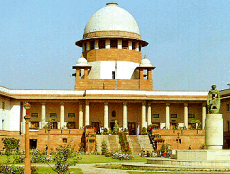
Supreme Court photo
The USTR announced its support for a narrow waiver on TRIPS obligations applying on Covid-19 Vaccines [see Swaraj’s take on this, here].
- The Supreme Court set up a National Task Force to streamline oxygen allocation across the country.
- Natco Pharma has started distributing generic versions of anti-arthritis drug Baricitinib, now used with Remdesivir to Covid-19 patients. It has also applied for a compulsory license for the same under Section 92 of the Patent Act [See Swaraj’s report on this, here].
- WhiteHat Jr withdrew its defamation suit against Pradeep Poonia before the Delhi High Court.
- Hyderabad-based Hetero Labs has sought CDSCO approval to make tocilizumab, a key drug for Covid treatment in India.
- An article in The Hindu revealed that ICMR shares IP ownership over Covaxin and receives royalties from its sale.
- Pfizer CEO stated that they seek an expedited approval pathway to market their vaccines in India.
- An ORF article considers compulsory licenses under Patent and Competition Law in India to bring about Vaccine Equity.
News from around the World
- The United States placed India and eight other countries on the Priority Watch List for IP protection and enforcement in its Annual Special 301 Report.
- Like US, New Zealand has expressed support for a narrow TRIPS waiver on Covid-19 vaccines.
- A UK court upheld Meghan Markle’s final copyright claim against Associated Newspapers, the publisher of the Mail on Sunday and MailOnline, over its publication of a letter to her father, Thomas Markle.
